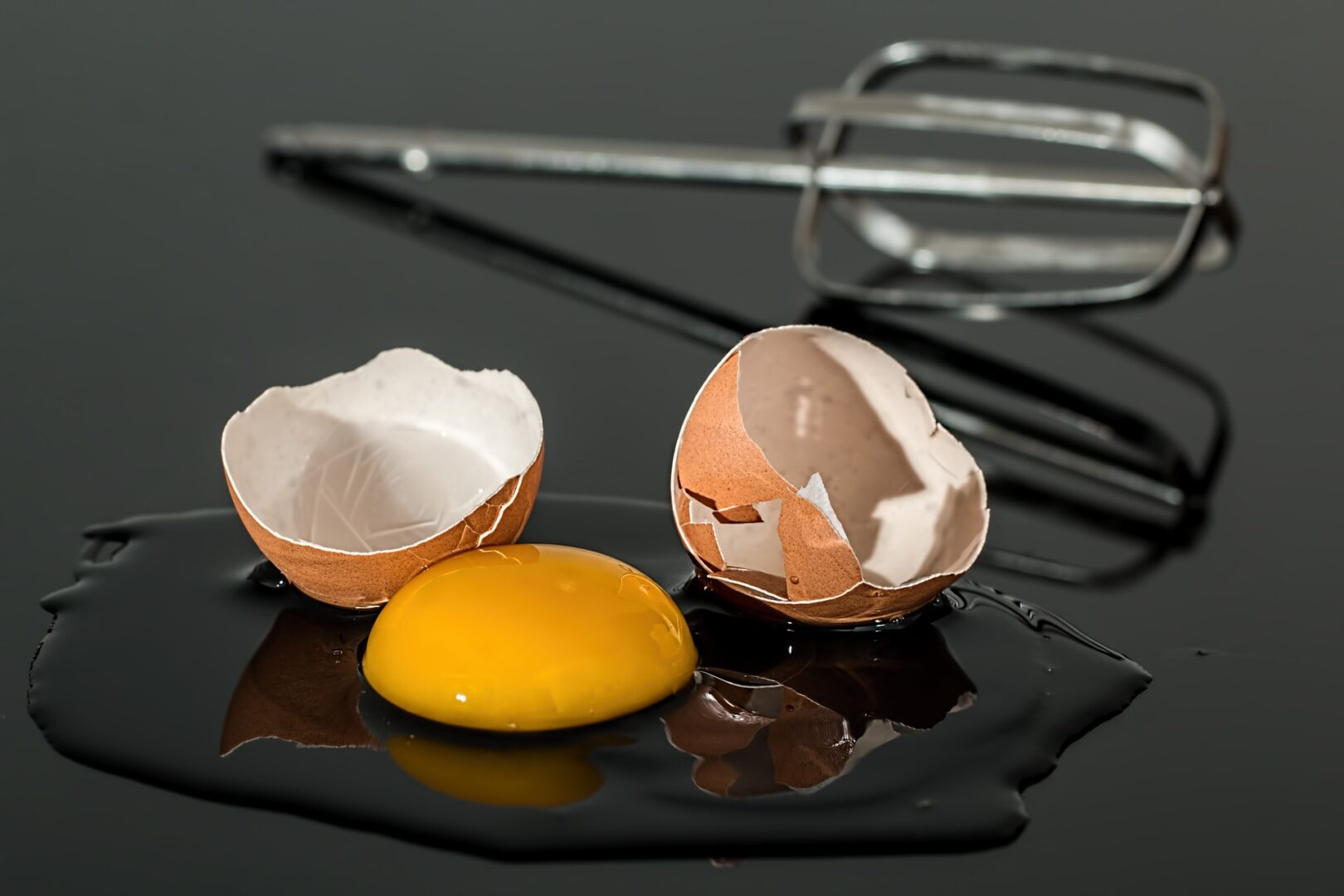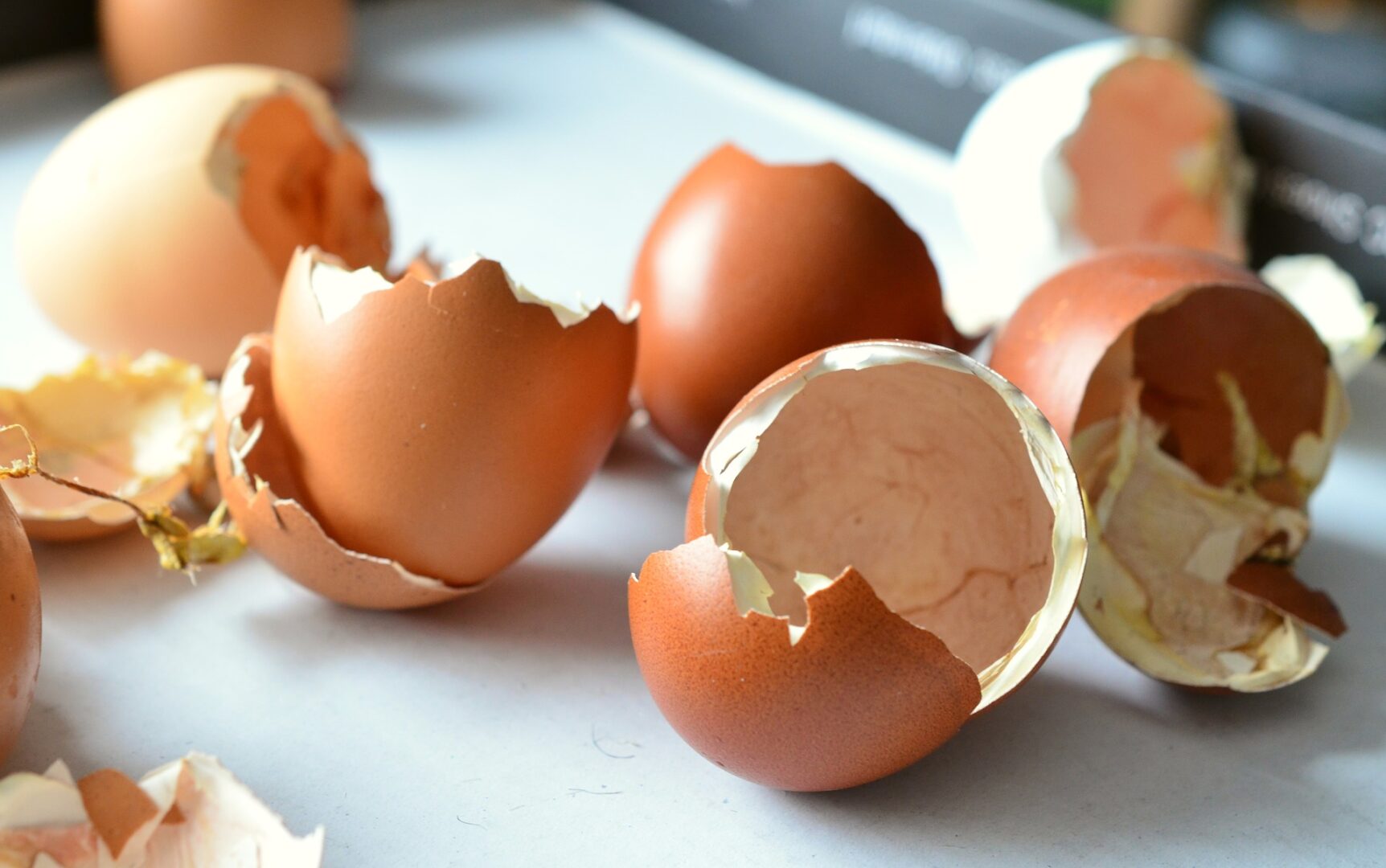A dog is truly a man’s best friend, and having dogs around comes with so many benefits. Besides their unrivaled companionship, an undeniable perk of having dogs is feeding them your extra or unwanted food. In this criteria, you’ll find dropped food, animal bones and fat, eggshells, and a lot more. However, not all food is safe for dogs.
For example, eggs have raised their fair share of controversy when it comes to feeding them to dogs. An egg has three main components: egg yolk, egg white, and eggshell. Of course, each of these components can be discussed separately. But today, we’re going to pay special attention to a famous question, “Can dogs eat eggshells?” So, let’s jump straight in and know the answer to this question and more!
Short Answer
Yes, dogs can eat eggshells. They can be used as a nutritious calcium supplement for them. However, it depends on other factors, such as the dog’s age, size, and diet. In addition, whether the eggshells are raw, cooked, powdered, or whole egg may influence adding them to your canine’s diet.
Can Dogs Eat Raw Eggshell?
Eating raw shells carries the same risk to your dog as eating raw eggs: Salmonella and other harmful bacteria. While dogs’ digestive systems can handle bacteria a lot better than humans, dogs can fall ill on rare occasions due to bacterial infections. A dog contracting salmonella won’t only get sick but will also possibly transfer the bacteria to you and your family.

To minimize salmonella risk with eggshells, you’ll need to sterilize them. To do that, boil your shells in water for three to five minutes. Then, make sure your shells have fully cooled down before serving them to your dog.
Symptoms of Salmonella Poisoning in Dogs
Salmonella in dogs usually has the following symptoms: nausea, vomiting, fever, decreased activity, lethargy, and diarrhea that may contain mucus or blood. Dog owners who notice salmonella infection symptoms in their dogs should contact their vet immediately.
Can Eating Eggshells Hurt My Dog?
Unfortunately, there are instances when eggshells can pose a threat to your dog.
1. Sharp Edges
The sharp edges of a broken-down shell can injure your dog. As it chews on them, eggshell shards can cut your dog’s tongue, throat, esophagus, and anything else they meet through their digestive system journey.
2. Incorrect Amount
Administering the wrong amount of eggshells to your dog can have dark consequences. For example, too much calcium can cause hyperthyroidism and kidney or bladder stones.
3. Eggshell Allergy
While eggshells are generally safe for dogs, some dogs can be allergic. Like us humans, dogs come with unique preferences and allergies. If your dog exhibits a severe allergic reaction, see the vet immediately.
Benefits of Eggshells for Dogs
Eggshells are a great bone-free alternative for improving your dog’s calcium intake. Depending on your dog’s diet, the shells can provide your dog with endless nutritional value and health benefits.
Vitamins and Minerals
Eggshells are a natural source of phosphorous, calcium, strontium, magnesium, and other minerals essential for your dog’s body functions.
Calcium
Calcium is famous for its amazing health benefits for dogs. Besides forming stronger, healthier bones and teeth, calcium can improve circulation, hormone distribution, neuron transmission, and intracellular communication. Additionally, calcium’s health benefits extend to the heart, muscles, and immune system.

Phosphorous
Phosphorous is key in heart and kidney functions. Not only does this mineral help the kidney flush out the body’s toxins, but it also plays a crucial role in cell repair and the efficient utilization of carbs and fats. Moreover, phosphorous improves motor functions by assisting muscle contractions.
Magnesium
Magnesium is good for the heart and the bones. This mineral helps regulate blood pressure and maintain a proper heartbeat.
Strontium
Strontium helps calcium absorption, bone formation, and bone fracture prevention.
Eggshell Membrane
The eggshell membrane is a strong, transparent layer separating the eggshell from the egg white. Biologically, the role of this membrane is to protect the inside of the egg from the bacteria and pathogens of the outside world.
The membranes have proven yet another benefit when it comes to dogs. Interestingly enough, egg membranes can significantly reduce joint pain in dogs with arthritis and other joint problems. This effect can be seen both in the short and long terms, thus improving your dog’s quality of life.
However, consider seeking veterinary advice if you’re thinking about adding eggshell membranes to your dog’s daily diet.
Related Contents
How Do I Prepare Eggshells for My Dog?
There are a few options to feed your dog eggshells. They’re as follows:
- Discarded shells from your hard-boiled eggs
- Whole eggs, cooked or raw
- Eggshell powder
How to Prepare Eggshell Powder
Eggshell powder is a versatile and convenient way to feed eggshells to your dog. When sprayed on or mixed with your dog’s food, the powder can serve as natural calcium and phosphorous supplement. Additionally, grinding the shells will better absorb the vitamins and minerals.

To make powdered eggshells, you’ll first need to get your hands on the eggs. Once you’ve saved enough shells, you’ll want to wash them and let them dry. Next, put your shells in a 200F oven for about 10 minutes and take them out to cool down.
Once they cool down completely, use a coffee grinder or food processor to grind your dry shells into a very fine powder. Alternatively, you can use a mortar and pestle for the process. Keep an eye out for any larger pieces, as these can cut your dog on their way down. Finally, store the powder in an airtight container; the powder can typically last there for up to two months.
Roughly speaking, one large egg should produce one teaspoon of powdered calcium supplements.
How Many Eggshells Should You Prepare?
The correct amount of eggshells is determined by two main factors: your dog and its diet.
Dog
So many different things about your dog determine the correct amount of eggshells to be fed. The first would be the size and weight of your dogs; bigger, heavier dogs will naturally require more eggshells than their smaller, lighter counterparts. The second factor would be the age of your dog. As you may know, dogs have different requirements at different growth stages.
A third factor would be your dog’s individual preferences; not all dogs like the same things. Needless to say, if your dog is allergic to eggs or their shells, it shouldn’t be fed any.
Diet
Diet is another key determinant of your dog’s suitable amount of eggshells. How your dogs get their daily nutrients will determine if they need the extra eggshell nutrients for a balanced diet. For example, dogs on a kibble diet don’t need this addition. Therefore, always check with your dog’s vet before adding calcium-rich shells to commercial dog food diets.
However, if your dog is on a homemade diet, it’s a good idea to look into eggshell nutrition. Remember that eggshells alone aren’t food substitutes and should never be treated as such. If you wish to incorporate the shells into your dog’s diet, you’ll need to treat them the same way you treat a supplement.
Frequently Asked Questions
Can Dogs Eat Cooked Eggs?
Yes, they can. Eggs are packed with protein, fatty acids, minerals, and vitamins, all of which are beneficial for your dog.
Can Dogs Eat Raw Eggs?
Yes, dogs can eat whole eggs raw; raw eggs have the same health benefits as cooked eggs. Dogs will snatch raw eggs from a bird’s nest and eat them along with their shells in the wild. A raw egg is actually easier to absorb than a cooked egg. While the risk of salmonella and other harmful bacteria is present in raw eggs, dogs’ digestive systems are more resistant to such infections.
Pet parents who feed raw eggs to their dogs need to carefully choose and store eggs to minimize the risk of infection.
What Are the Best Eggs for Dogs?
The best eggs for dogs are farm-fresh eggs. It’s always best to stay away from store-bought eggs because the material used to bleach them can strip them of their natural vitamins and minerals. Additionally, bleach can harm your dog.
Can Puppies Eat Eggshells?
Yes, puppies can eat eggshells. Just like adult dogs, eggshells are nutritious to little pups. However, you’ll want to make sure the shells don’t cut their fragile mouths. Additionally, when feeding shells to puppies, practice extra care because accidentally feeding them too much can cause skeletal development problems.
Can Eggs Cause Biotin Deficiency in Dogs?
Biotin, also known as vitamin B7, is an important vitamin that supports healthy skin, digestion, cells, and metabolism. Raw egg whites contain avidin, which is an enzyme that binds to biotin and inhibits its absorption. Therefore, regularly feeding your dog raw egg whites can lead to biotin deficiency.
However, this risk is almost diminished if you feed it the whole egg; the trick here is in the egg yolks. Egg yolks contain biotin that can bind to avidin, filling up its receptors. Avidin with busy receptors won’t bind to your dog’s biotin.
Bottom Line
To sum up, eggshells used properly can carry a world of health benefits to dogs. However, it’s never a one-size-fits-all situation, so you’ll want to customize the intake to your dog’s specific needs. Also, keep in mind to seek advice from your vet before adding new food to your canine’s diet.
References
- https://m.petmd.com/dog/nutrition/evr_multi_eggs_for_pets2
- https://www.dogsnaturallymagazine.com/feeding-your-dog-raw-eggs-good-or-bad/
- https://www.thelabradorsite.com/can-dogs-eat-egg-shells/
- https://dogtime.com/dog-health/53925-salmonella-infection-dogs-symptoms-causes-treatments
- https://www.pawesome.net/can-dogs-eat-eggshells/
- https://www.akc.org/expert-advice/nutrition/can-dogs-eat-eggs/

